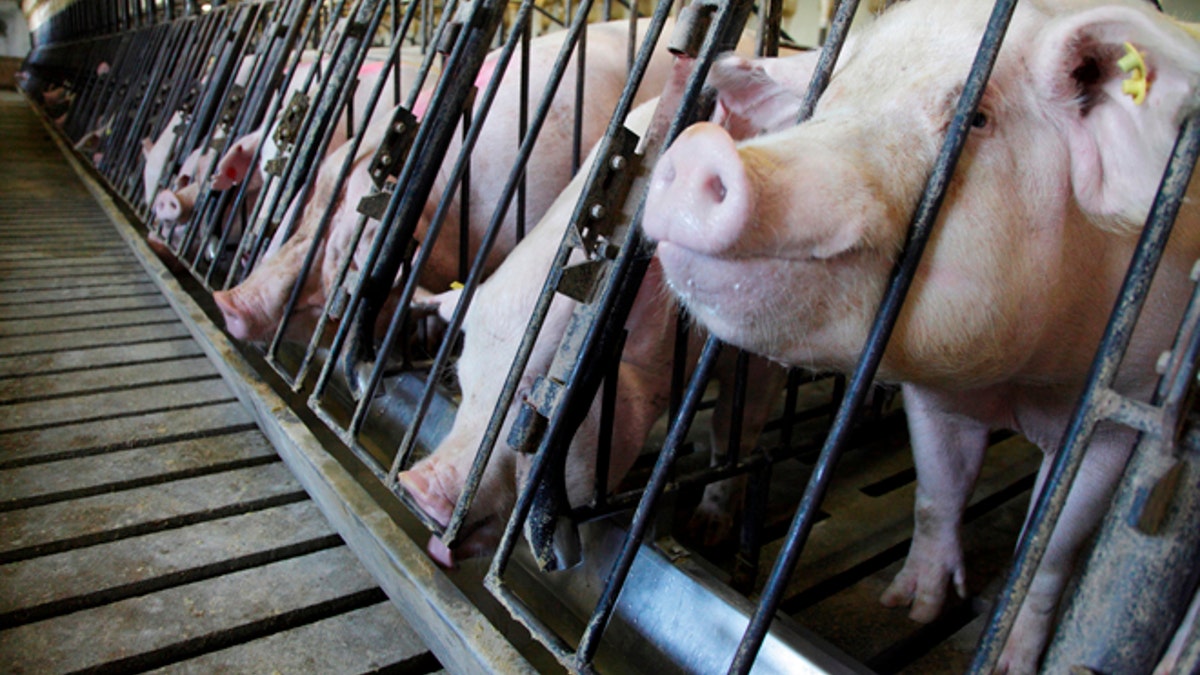
Pigs feeding at a farm in Indiana. (REUTERS/John Gress)
Hog farmers are six times more likely than the general population to carry an infectious bacteria that can cause skin and respiratory problems and resists treatment from multiple drugs, according to a new U.S. research study.
The study, published this week in the online journal Clinical Infectious Diseases, is the largest-ever examination of infections of Staphylococcus aureus, or staph, in a group of livestock workers. It comes amid rising concern that widespread antibiotic use in meat production could create risks to human health.
Staph is a leading cause of skin and soft tissue infections in humans. Most infections are not life threatening, but the bacteria can lead to pneumonia and turn deadly if they infect the bloodstream, bones and joints, or lungs.
Health experts are concerned that routine use of antibiotics in meat production could be spurring the growth of antibiotic-resistant "superbugs" capable of creating a human health hazard.
The study tracked more than 1,300 Iowa residents, including workers on hog farms, for 18 months starting in May 2011, said Tara Smith, an author of the report and associate professor at Kent State University in Ohio.
Researchers said information was not available about whether the hogs were fed antibiotics. They did not take samples from the animals.
They found that 20 percent of the participants exposed to hogs were carrying multi-drug resistant staph bacteria, compared to 3 percent in the unexposed group. Some 34 percent of the participants exposed to hogs carried a strain resistant to tetracycline, a human antibiotic also used in meat production, compared to 4 percent in the unexposed group, the report said.
People carrying staph bacteria do not automatically become sick.
"These people, farmers included, were getting staph infections and they were being caused by these livestock-associated strains" of bacteria, Smith told Reuters.
The prevalence of staph bacteria resistant to the antibiotic methicillin, known as MRSA, was "unexpectedly" similar between the exposed and unexposed groups, according to the study. MRSA is resistant to the antibiotics commonly used to treat ordinary staph infections.
The National Pork Producers Council, an industry group, said other studies show hog farming does not create an increased risk for staph infections.
Tyson Foods Inc, the largest U.S. poultry producer, this week said it plans to stop treating its chicken flocks with human antibiotics and is working to curb on-farm drug use in other meat businesses, including pork.
